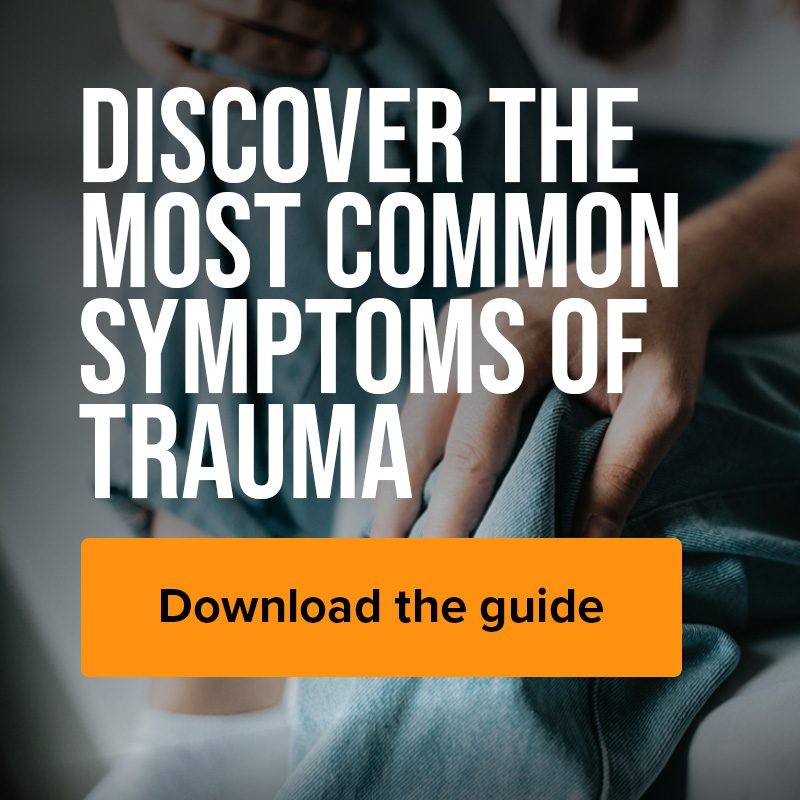The phrase, “I was so traumatized,” is often used very loosely by individuals to describe how shocked they were about something eventful that took place. It’s true that many of us do experience some type of trauma at least once in our life but not to the degree that others might who are deeply affected by it.
Psychological Trauma is a psychiatric disorder that occurs in people when they’ve experienced an event that was too overwhelming for them to manage, and as a result feel symptoms that are negatively impacting their well-being. It can affect people in different ways, regardless of age or ethnicity.
Exposure to trauma is very common. A study published by the American Psychological Association predicts that approximately 60-70% of the general population will be exposed to trauma.[1] Most individuals will develop symptoms that will resolve themselves on their own, and move on with their lives. Yet, according to a research study conducted by McMaster University published in the Journal CNS Neuroscience and Therapeutics, there is still 9% of the Canadian population with symptoms that persist.[2]
Some examples of traumatic events can include:
- Workplace (on-the-job) accidents
- Vehicle accidents such as cars, boats, airplane and train crashes
- Childhood physical, emotional and sexual abuse
- Childhood neglect and abandonment
- Natural disasters such as earthquakes, tsunamis, fires, etc.
- Military combat
- Sexual assault
- Physical assault
- Witnessing violence
Symptoms of Trauma
We spoke with Kathy Adetuyi, one of our counsellors at EHN Bellwood Toronto, who has been a part of Bellwood’s Addiction and PTSD/OSI team for many years. Kathy is now a member of our new Trauma & Psychological Injury Treatment Program that is set to launch in May 2017. Kathy states that one of the most common symptoms she finds in patients is residual fear and/ or anger. “When a person experiences a traumatic event, they don’t have time during the event to feel fear or anger. These emotions can come out over time after the event has occurred. It’s as if the brain and the body are experiencing a delayed reaction which can be manifested as anger or extreme fear. Very often, family members or co-workers will feel the person’s reactions are disproportionate to a situation.”
The following is a list of the most common symptoms of psychological trauma
1.Intrusive recollections of the trauma, including flashbacks
2. Emotional and physical reactivity in response to reminders
3. negative beliefs about oneself or others
4. Inability to feel close to others
5. Being easily startled
6. Dissociation
7. Emotional numbness
8. Inability to remember aspects of, or all of the traumatic event
9. Avoidance of anything that reminds one of the trauma
10. Hypervigilance: Always being alert, scanning and assessing for threat
11. Difficulty concentrating and focusing on reality
12. Chronic Sleep Disturbance: Inability to fall asleep or to remain asleep, frequent and frightening nightmares
Note that the above is not an inclusive list of symptoms of trauma.
Trauma & Psychological Injury Treatment
The level of treatment individuals require depends on how a person has been carrying on since the trauma. When symptoms begin to interfere with one’s daily life, intensive treatment may be required to truly make an impact on the healing process. Bellwood’s Trauma and Psychological Injury Treatment Program is designed to help women and men with a work-related psychological injury.
The focus of this new Bellwood trauma program is to improve PTSD symptoms, gain skills to manage emotions, and learn how to improve relationships and daily functioning. As Kathy explains, “Anger management, nightmare management, addressing flashbacks, triggers, and sleep disturbance are some of the features that are included in this program. We look at why individuals are specifically avoiding things that remind them of the traumatic event instead of getting help. It’s very common for individuals to isolate as a way to protect themselves. They will convince themselves that it’s the only way they won’t feel, smell or hear their trauma.”
Bellwood’s Trauma and Psychological Injury Treatment Program teaches healthy ways to self-regulate for symptom management. This can include breathing exercises and learning how to connect to safety and the present moment.
Kathy describes the program as follows: “In the first two phases of the treatment program, our team will work with a patient on an individual and group basis to understand what happens in the brain when one is triggered and teach him/ her how to manage those specific symptoms and grounding techniques. Our goal is to help patients identify the trauma symptoms that are the most debilitating and then provide them with skills and support to change how they process the trauma. Essentially, our patients are learning how to attend to themselves and manage hyperarousal and their emotions. For example, patients will learn that if they feel triggered, they need 25 minutes to first do A, B, and C, and then go back to attending to their child.”
The third phase of treatment is called Re-Integration. Patients are taught how to resume functionality, build connections with others, improve relationships with family members, and transition back to a healthier lifestyle. Kathy shares, “With the help of our occupational therapist, we will use exposure therapy to help our patients re-integrate back to their community. This might be going out and being amongst a crowd of people or going to places that are triggering, such as a school or bank.”
The Outcome
This program was developed to help patients become highly skilled in managing their symptomatology. With time, the symptoms will lessen, but they can still fluctuate over the course of someone’s life. As Kathy explains, “We want people to continue to attend to themselves as oppose to thinking they’ve completed the program and are cured. It’s important that patients understand that this is an intensive program designed to get them on the path of recovery. They still need continuing care to remain in recovery, whether it is on an individual basis, group therapy, online aftercare, or an OSI support group.”
To learn more about this program or about our Addiction & PTSD/OSI Treatment program, please contact us. We are here and we are ready to help.
https://www.cbc.ca/natureofthings/episodes/ptsd-beyond-trauma
[1] Ouimette, P., & Read, J. P. (2014). Trauma and substance abuse: Causes, consequences, and treatment of comorbid disorders (2nd ed.) American Psychological Association. doi:10.1037/14273-000
[2] https://www.cbc.ca/news/technology/almost-1-in-10-canadians-has-post-traumatic-stress-at-some-point-study-1.773448

